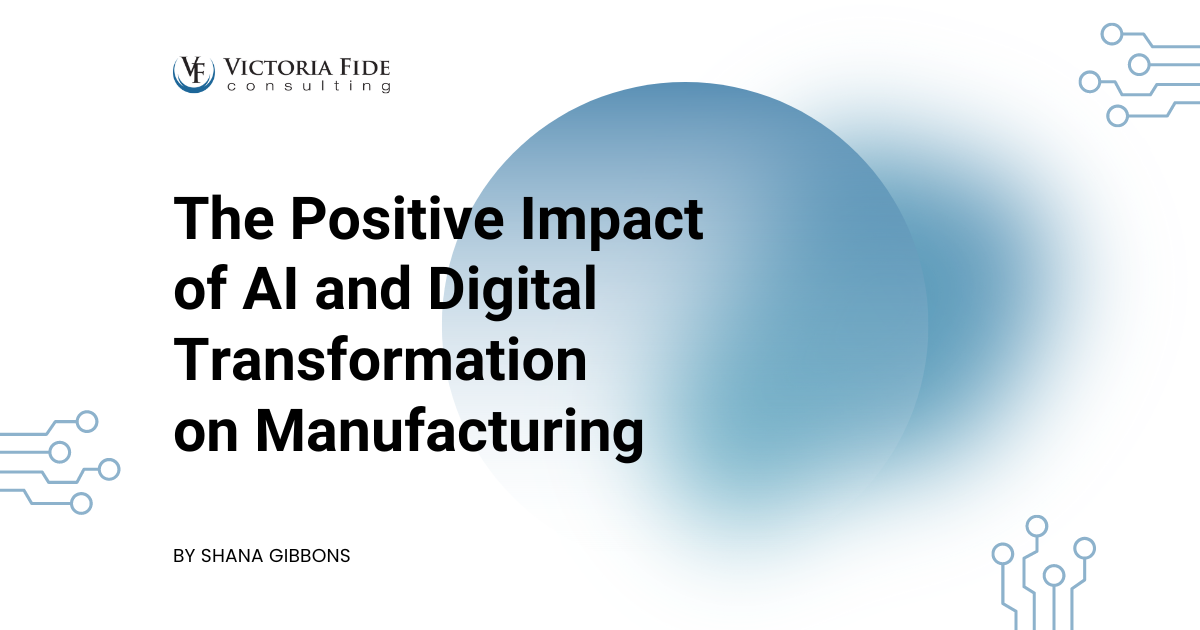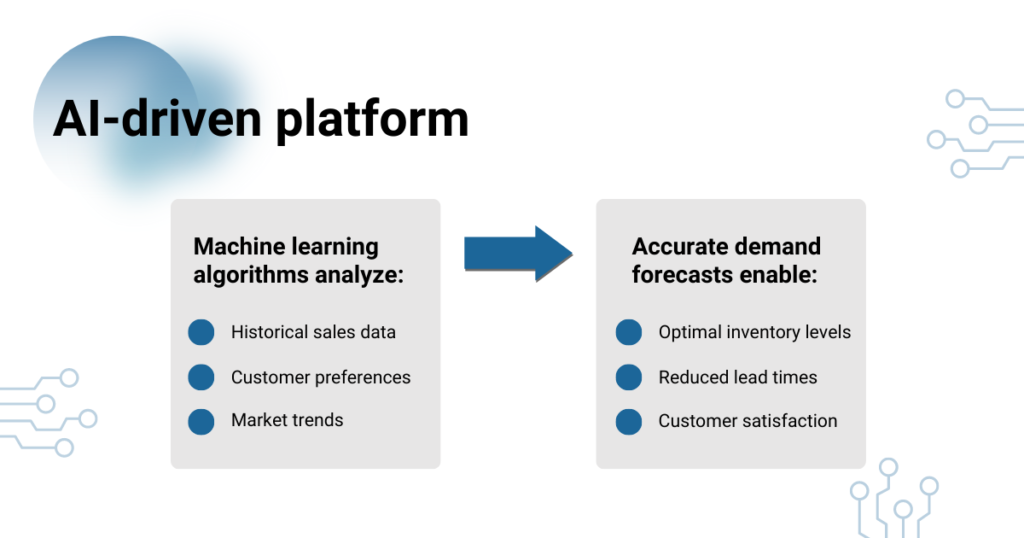
The Positive Impact of AI and Digital Transformation on Manufacturing
The benefits of artificial intelligence (AI) and digital transformation in both the manufacturing and production fields are many and varied. By adopting Industry 4.0 technologies and data-driven processes, both industries can improve efficiency, reduce costs, enhance the quality of their products, and better meet the needs of their customers.
The manufacturing industry has always been on the frontline of technological advancements, evolving and adapting to the ever-changing landscape. However, in recent years, the growing adoption of artificial intelligence (AI) and digital transformation has become a game-changer, revolutionizing how manufacturers operate. By leveraging these cutting-edge technologies, companies can boost productivity, increase efficiency, and reduce costs, all while staying ahead of their competitors.
In this blog post, we will delve into the positive impact of AI and digital transformation in the manufacturing sector, exploring three compelling examples that demonstrate these technologies’ power to shape the industry’s future.
Table of Contents
Streamlining Supply Chain Management
One area in which AI and digital transformation have made a significant impact is supply chain management. Traditional supply chain processes can be time-consuming and prone to human error, leading to inefficiencies and increased costs. By adopting AI-powered solutions, manufacturers can optimize every aspect of their supply chain, from procurement to distribution.
For instance, Tesla — a leading automotive manufacturer — has implemented an AI-driven platform to predict demand and optimize inventory levels. The platform uses machine learning algorithms to analyze historical sales data, customer preferences, and market trends to generate accurate demand forecasts. This enables the company to maintain optimal inventory levels, reduce lead times, and improve customer satisfaction.
Furthermore, digital transformation has allowed manufacturers to connect different parts of their supply chain through cloud-based platforms, providing real-time visibility and enabling better stakeholder collaboration. This enhanced connectivity reduces delays and bottlenecks, and allows for a more agile and responsive supply chain.

Boosting Productivity through Predictive Maintenance
Equipment downtime is a significant issue in the manufacturing industry, leading to lost production time and increased costs. AI-driven predictive maintenance can help manufacturers minimize downtime by identifying potential issues before they become critical, thereby reducing the frequency of unexpected breakdowns.
A major steel manufacturer, for example, has employed AI-powered predictive maintenance to monitor the health of its equipment. The system collects data from sensors installed on various machines and uses advanced algorithms to detect patterns and anomalies that may indicate a potential failure. As a result, the company has been able to schedule maintenance more effectively, reducing unplanned downtime by 25% and boosting overall productivity.
Integrating AI and the Industrial Internet of Things (IIoT) in manufacturing plants allows for real-time equipment performance monitoring, enabling manufacturers to make data-driven decisions and optimize their maintenance strategies. This not only improves productivity but also extends the lifespan of the equipment and reduces operational costs.
Enhancing Quality Control through AI-Powered Inspections
Maintaining high-quality standards is crucial for manufacturers, as poor-quality products can lead to customer dissatisfaction, recalls, and damaged reputation. However, traditional quality control methods, such as manual inspections, can be time-consuming, labor-intensive, and prone to human error. AI and digital transformation offer a more effective solution, enabling manufacturers to automate quality control processes and ensure consistent product quality.
A global electronics manufacturer, for example, has implemented an AI-driven quality control system that uses computer vision technology to inspect products on the assembly line. The system captures images of the products and compares them to a predefined set of quality criteria, identifying defects and deviations in real-time. As a result, the company has reduced the number of defective products by 90% and increased overall efficiency.
By automating quality control processes, manufacturers can achieve higher accuracy and consistency in product quality, and free up their workforce to focus on more value-added tasks, driving innovation and growth.
